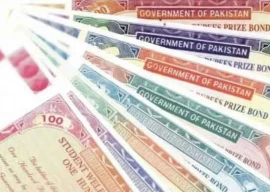
Large dams are expensive and slow to build — in this instance around Rs928 billion and probably more than that when cost overruns are factored in — and have to survive successive governments and the vagaries of the national economy. In the event of a power-generation option being added to the Diamer Basha Dam the costs rise to Rs1.4 trillion.
There has been a groundbreaking ceremony almost every year for the last 17 years but lack of finance and assorted difficulties with compensation to the local population (mainly resolved now) and riparian populations downstream (mostly unresolved to date) have impeded construction. Both of these projects are crucial to the future of Pakistan in the very widest sense. Its importance is well known to India that has done its best to frustrate the development, and the international lenders are concerned about the implications of building on disputed territory but built they must be. It is now essential to drive forward with all speed, and if that means a few toes get trodden on and feathers ruffled in the process then so be it. Power and water have primacy.
Published in The Express Tribune, March 21st, 2018.
Like Opinion & Editorial on Facebook, follow @ETOpEd on Twitter to receive all updates on all our daily pieces.



















COMMENTS
Comments are moderated and generally will be posted if they are on-topic and not abusive.
For more information, please see our Comments FAQ